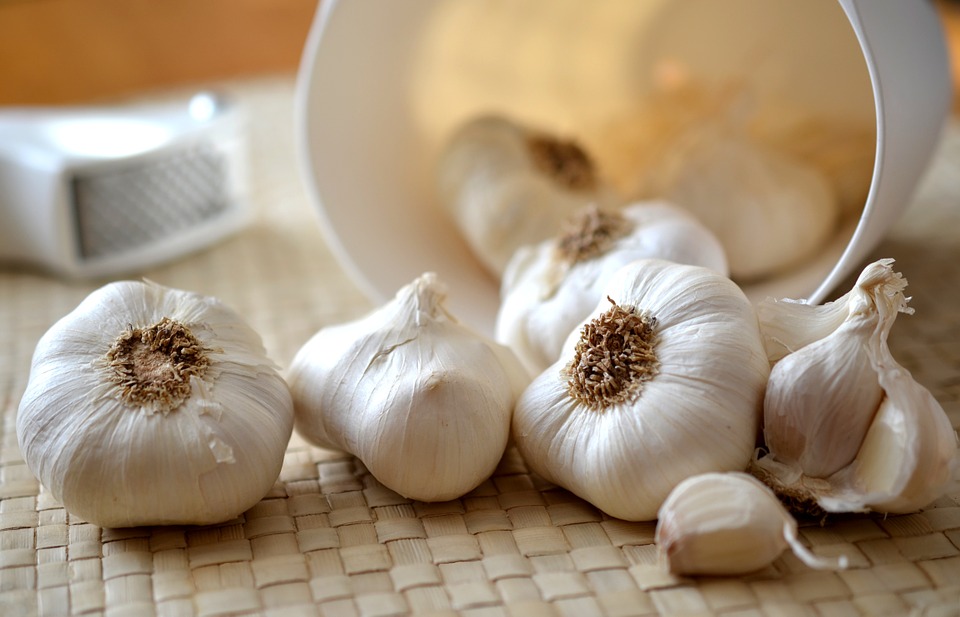
If you have a cat, you need to be aware that garlic, along with chives, leeks, shallots, and onions are poisonous for cats and dogs. These are all part of the Allium plant family. When it comes to whether cats can eat garlic, keep in mind that it is estimated to be roughly five times more toxic than onions. So even if garlic is one of your favorite foods, do your best to keep it away from your furry feline.
Why is Garlic Poisonous for Cats?
Part of the Allium plant family, this type of plant is one that dogs and cats are just not able to digest in the same way as humans. When cats eat garlic, their inability to digest it properly can result in something called hemolytic anemia.
This is a condition where the red blood cells coursing through your cat’s body burst. The risk of hemolytic anemia is the worst-case scenario. The least case scenario if your cat eats garlic is that it will cause the stomach and intestines to swell, called gastroenteritis, a very painful condition.
What If My Cats Eat Garlic Accidentally?
We all know that even with our best intentions and safeguards, cats are phenomenal at getting into things that they aren’t supposed to get into. Poisoning due to consumption of garlic can be delayed too, which means you may not see symptoms of garlic poisoning in your cat right away. So how will you know if your cat has eaten garlic? You’ll need to watch them carefully for signs of toxicity. Toxicity symptoms include diarrhea, elevated heart rate, vomiting, breathlessness, pale gums, lethargy, increased respiratory rate, intolerance for exercise or mobility, and unexplained weakness.
Symptoms could appear in your cat anywhere from 48 hours to four days after your pet has eaten garlic. If you see any of these symptoms in your cat and you suspect they may have eaten something toxic, such as garlic, seek help from your veterinarian as soon as possible.
Isn’t Garlic Used to Prevent Fleas on Cats?
Believe it or not, some people do add garlic powder to their cat’s water to try and prevent fleas. Admittedly, there is some debate over whether or not garlic is effective at preventing fleas on cats and dogs. But regardless of whether or not it works, the point is that you are risking your cat’s life by feeding them any amount of garlic, no matter how concentrated. There have been cases of cats and dogs who became sick after a gradual buildup of garlic in their system. This gradual buildup can occur because a pet owner is using garlic for flea control or because some pet food manufacturers actually use garlic in their cat food.
Make sure that you carefully check the ingredients in any flea control medication and in your pet food to make sure garlic is not listed as an ingredient. If you use garlic pills for your own health benefit, make sure that your pills are kept where your cat cannot inadvertently get into them. If you need additional information about the toxicity of garlic, call the ASPCA Animal Poison Control Center.